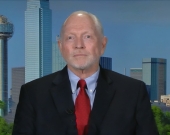Dr. Martin to Gulan: Biden administration understands diplomacy and need to work with states when possible

Lenore G. Martin is Professor in the Department of Political Science and International Studies, at Emmanuel College in Boston, and an Associate of both the Weatherhead Center for International Affairs and the Center for Middle Eastern Studies at Harvard University. She co-chairs the Middle East Seminar, at Harvard. She has received three Fulbright awards, the last one in 2010 as a Senior Fulbright Researcher at Middle East Technical University, working on Turkey and the Middle East. She has written books and numerous articles analyzing national security in the Gulf, the larger Middle East and Turkey, including: The Unstable Gulf: Threats from Within, Lexington Books 1984, New Frontiers in Middle East Security, edited, St. Martin’s/Palgrave 1999 and 2001, and The Future of Turkish Foreign Policy, co-edited with Dimitris Keridis, MIT 2004. In 2010, as a member of the Boston Study Group on Middle East Peace she co-authored, Israel and Palestine-Two States for Two Peoples: If Not Now, When? an on-line book with the Foreign Policy Association. From 1999-2017 she co-chaired the Seminar on Turkey in the Modern World at Harvard University. In 2012 and 2016 she spent the Trinity Term at St. Antony’s College, University of Oxford as a Senior Associate Member and Visiting Academic respectively. Dr. Martin has been on the editorial board of Turkish Studies since its inception in the spring of 2000 and was named to the editorial board of the Asian Journal of Middle Eastern and Islamic Studies in 2017. In a written interview she answered our questions like the following:
Gulan: What has changed in the international relations since Mr. Biden Administration assumed power, given that this Administration has reiterated its commitments to multilateralism? And do you see and emerging Biden Doctrine with regard to the foreign affairs?
Dr. Lenore G. Martin: One very obvious change has been the tone. One understands that whatever the policy the administration takes has been thoughtfully reached. It is not policy by whim. It is policy that is meant to be in the national interest. This is an administration that respects and understand diplomacy and the need to work with other states when possible. The Biden administration seems to have avoided the previous administration’s penchant of cultivating personal friendships with dictators.
Gulan: Between transactional and transformational foraging policy, which one do you recommend the current US administration should pursue, and which one of them is more realistic and realizable?
Dr. Lenore G. Martin: The Biden administration at this point seems to be facing each foreign policy decision on its own merits. In this complex international arena, I believe that makes the most sense.
Gulan: What is your overall evaluation of the Mr. Biden’s Administration’s foreign policy regarding the Middle East?
Dr. Lenore G. Martin:
ISRAELI-PALESTINIAN RELATIONSHIP
Biden walked into an Israeli- Hamas battle. It walked the difficult line of trying to support the Israelis and to strengthen the Palestinian Authority while at the same time trying to weaken Hamas. They have not been all that successful on that point. But the Biden Administration has also reopened the US Consulate in Jerusalem to be able to have closer connection to the Palestinian Authority and the Palestinian people. There is clearly a recognition on the part of the Israeli government that this is a new administration with a desire to support a two-state solution. Therefore the Israelis have announced the building of 850 Palestinian homes in the West Bank. This, just before the New Israeli Prime Minister to visit the White House. It will be important to watch how much sway the new Biden Administration has with the new Israeli government.
IRAN
The Biden Administration has also tried to negotiate rejoining the JCPOA. With a new more hardline President in Teheran that could be more challenging or considering President Raisi’s close relationship with the Supreme Leader it may be more possible. We shall see. President Biden’s appointment of Rob Malley makes the administration’s desire to have a successful negotiation clear. Rob Malley knows the Middle East and has been a voice for reason throughout his career.
There is also very real concern in the administration and in Congress about Iran’s use of militias throughout the region in Syria, Lebanon, Iraq, and Yemen. That will certainly impact the relationship.
TURKEY and SYRIA
President Biden has also taken a diplomatic but clear stand with Turkish President Erdogan. Strategically, Biden has maintained US support for the SDF in Syria and made clear US goal to eliminate the Islamic State in Syria. Turkey has supported the fighters of the Free Syrian Army and has continued to support a number of Islamist militias. Turkey’s main concern in Syria is to control the Kurdish PYD which it believes is linked to the PKK. Turkey, the US, and Britain all have labeled the PKK as a terrorist group. The US on the other hand separates the PKK and PYD and depends on the YPG and YPJ, the militias of the PYD, to fight the Islamic State and control the Islamic State prisoners and families.
Turkey has been very aggressive in Northern Iraq where it is continually attacking the PKK camps.
There is a huge disagreement between Turkey, the US and NATO over Turkey’s acceptance of the S400 missile system that Turkey has bought from Russia.
Lastly, President Erdogan is a major supporter of Hamas which the US has on its terrorist list.
Former President Trump did little to address most of these disagreements with Turkey. It is very likely that the Biden will take a stronger stand where some of these national security issues with Turkey are concerned.
So, you can see US policy is now being developed according to the US national interest in each situation.
Gulan: There is believe real or perceived that USA is disengaging from the Middle East, do you agree that this is because this region is less important to the vital interests of America since it has achieved energy self-sufficiency?
Dr. Lenore G. Martin: While it is true that the US is no longer dependent on the Middle East for energy imports, I think the US is trying to disengage from a war footing in the region. Nevertheless, it continues to maintain bases in the region. The Middle East remains an important region for security as well as for trade and commerce. For those reasons the US will remain engaged in the area as we have seen under this new administration.
Gulan: As you know there is an enormous trust deficit between US and Iran, but it seems like Mr. Biden’s administration is willing if not saying determined to resume negotiation with Iran, so what are the prerequisites for taking confidence building measures between these two rival countries, at least for revitalizing the nuclear deal?
Dr. Lenore G. Martin: I do not think the issue is confidence building. The issue is what each side is willing to compromise on and how any deal will be verified. If there is a deal and it is kept by both sides that will be the trust builder.
Gulan: Do you see any prospect for Sustained, Strategic U.S.-Iraq Partnership after Joint Statement on the U.S.-Iraq Strategic Dialogue?
Dr. Lenore G. Martin: I believe the agreement was meant to support the Iraqi Prime Minister to address the domestic issue of the calls for all US forces to be removed from in Iraq. This agreement allows the US to continue to help control the ISIS forces in the state through training and assistance. It is an agreement that responds to the needs of both Iraq and the US.
Gulan: How do you evaluate Mr. Biden's Decision to withdraw from Afghanistan and the subsequent rapid and dramatic deterioration of the security situation in that country?
Dr. Lenore G. Martin: It is tragic to watch the deterioration of the Afghan government and army as they come under assault by the very organized Taliban forces. Those who aided the US, women, those who are more secular, those who are eager for education and modernization are in great danger as we have been seeing for months. The US needed to prepare to evacuate the Afghans who were crucial to the US efforts in the country before it announced its withdrawal. It is very hard to think of what this will mean for Afghan women and children in the future.















